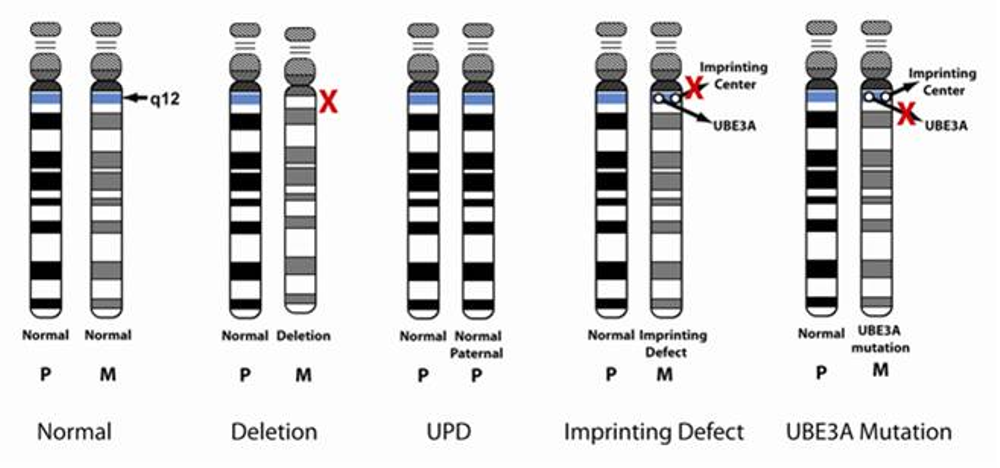What is Angelman Syndrome?
 Their are 4 different ways an individual can have Angelman Syndrome: 1. The UBE3A gene is deleted. 2. There are two inherited copies of the paternal chromosome with both UBE3A genes silence. 3. A mutation in the UBE3A gene 4. An imprinting defect
Their are 4 different ways an individual can have Angelman Syndrome: 1. The UBE3A gene is deleted. 2. There are two inherited copies of the paternal chromosome with both UBE3A genes silence. 3. A mutation in the UBE3A gene 4. An imprinting defectAngelman syndrome (AS) is a rare neurogenetic disorder that affects approximately one in 15,000 people – about 500,000 individuals worldwide. There are five different ways to genetically have Angelman Syndrome, but all are caused by the lack of a functional copy of the UBE3A gene on the 15th chromosome. We all normally have a copy of each chromosome, one copy from the father and one copy from the mother. The majority of individuals (65-75%), including Silas, have a deletion of the UBE3A gene on the maternal copy of chromosome 15. Unfortunately the father’s copy of the UBE3A gene is silenced by genomic imprinting, causing there to be no functional copy of the gene in the brain.
What is so important about UBE3A?
The UBE3A gene makes a protein called ubiquitin ligase E3A, which is basically a housekeeper in between the brain’s cells, or neurons. This enzyme tags other molecules for destruction when they are not needed anymore and maintains the balance between protein synthesis and degradation. This is most important in the synapse space between the neurons where efficient communication between cells is very important. An appropriate protein balance in the synapse also aids in learning and development of neurons.
About Team Silas Hommes
Silas is three years old and was diagnosed with Angelman Syndrome two years ago. This is a rare neurogenetic disorder caused by a random deletion on his 15th chromosome. Angelman Syndrome causes global developmental delay, lack of speech, poor coordination and movement, and seizures. We raise funds for the Foundation for Angelman Syndrome Therapeutics (FAST) which is directly funding multiple potential cures for Angelman Syndrome which will enter clinical trials in the next year. One hundred percent of the funds Team Silas raises go directly towards this research.